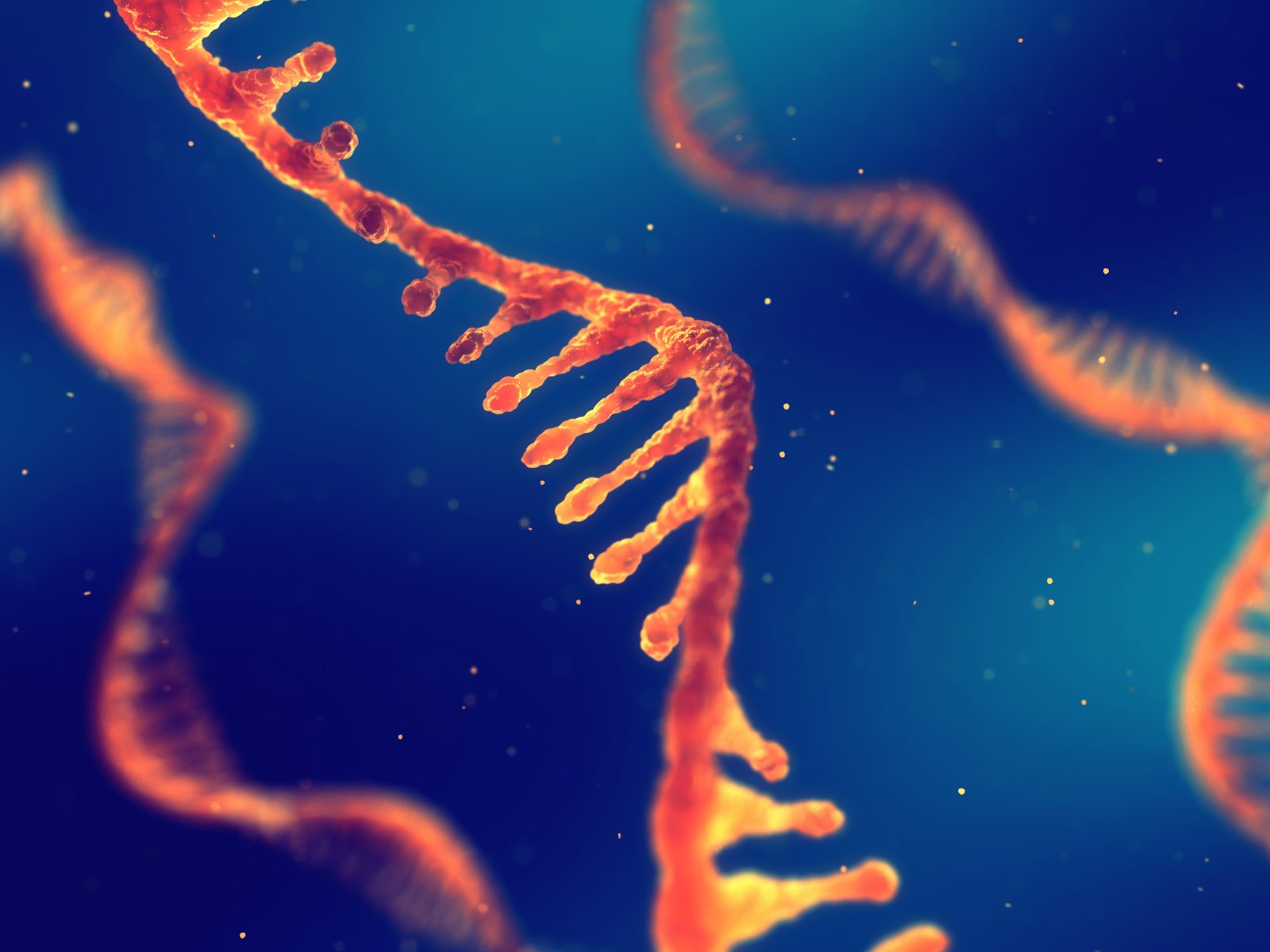


Did U of Tokyo Just Solve the Mystery of Life’s Origin?
On this ID the Future, Brian Miller, research coordinator for the Center for Science & Culture, reports on laboratory research recently presented in Nature Communications and in a University of Tokyo press release— research that supposedly provides dramatic “new insights into the possible origin of life,” and specifically “the molecular evolution of RNA.” The popular press picked up on these claims and ran with them, including in this May 5 Quanta article that breathlessly reported, “When researchers gave a genetic molecule the ability to replicate, it evolved over time into a complex network of ‘hosts’ and ‘parasites’ that both competed and cooperated to survive.” Miller says nothing remotely this dramatic occurred in the experiment. He insists there were no great revelations from this laboratory work, aside perhaps from it further corroborating the view that precisely orchestrated interventions of an intelligent designer (in this case, that of the lab researchers) are required in order to make any headway on the road from non-life to life. But as Miller’s conversation with host Eric Anderson suggests, even that might be to exaggerate what the University of Tokyo experimenters accomplished, since the RNA “evolution” they achieved was actually devolution. Tune in as Miller and Anderson break it down. And for more, check out Miller’s Evolution News article on the subject.

New Animated Video Dismantles Origin-of-Life Hype
Today’s ID the Future spotlights a new origin-of-life video showing that researchers aren’t anywhere close to creating life from non-life, despite the fact most Americans seem to believe otherwise. In the episode, host Eric Anderson interviews Stairway to Life co-author Rob Stadler, who helped create the new Long Story Short animated video. Stadler and Anderson explore how origin-of-life papers and popular media reports have misled the public, evidenced by a survey underscored by Rice University synthetic organic chemist James Tour. Then they discuss several daunting origin-of-life hurdles beyond the synthesis of key chemical building blocks. These are hurdles significant enough that each alone may doom the idea of life having once emerged from non-life spontaneously. Indeed, it is now a matter of record that the hurdles are so daunting that for several decades they have kept many brilliant and lavishly funded scientists from intelligently designing life from non-life in the lab. Thus it is hardly unreasonable to entertain the idea that the origin of the first life required not merely intelligent design, but an ingenious designing intelligence far beyond that of our smartest origin-of-life researchers.

Physicist Brian Miller Talks Nanotech, Origin of Life, and Area 51
On today’s ID the Future physicist Brian Miller and host Eric Anderson continue their exploration of a recent conversation between origin-of-life investigators Jeremy England and Paul Davies on Justin Brierley’s Unbelievable? radio show. Miller begins with a quick flyover of the many nanotechnologies essential to even to the simplest viable cell. A minimally complex cell is vastly more sophisticated than our best human nanotechnology. What about England’s insistence that real progress has been made in origin-of-life studies since the 1950s? True, Anderson says, but the progress has been principally in better understanding how the simplest cells function, and in figuring out what doesn’t work to blindly evolve life from non-life. That is, the direction of discovery has been to throw cold water on one idea after another for the naturalistic origin of life. Miller then makes an even bolder statement. All the physics for us to have known this were in place more than a hundred years ago. The origin-of-life community just chose to ignore it, perhaps because they were dogmatically wedded to finding a purely materialistic explanation for the origin of the first life. To show why that’s misguided, Miller offers an illustrative story: Imagine that what looks for all the world like an alien spaceship is discovered in the desert. Two groups of scientists decide on radically different approaches to understanding the workings of this mysterious object. Tune in to hear the rest of the story.

More on James Tour’s Abiogenesis YouTube Series
On today’s ID the Future, physicist Brian Miller continues his review of James Tour’s origin-of-life YouTube series. As Miller explains, Tour, a world-renowned synthetic organic chemist and professor at Rice University, was inspired to create the series when YouTuber and evolutionist Dave Farina critiqued Tour’s critique of contemporary origin-of-life claims. In reviewing Tour’s video series, Miller and host Eric Anderson praise the Tour series and discuss the Levinthal paradox of the interactome, the ridiculously long odds of blind processes assembling the first living cell, and the challenge of cell death (think Humpty Dumpty and what all the king’s men couldn’t do). Also discussed: entropy, molecular machines, the challenges that Brownian motion and homochirality pose, the presence of intelligent design in attempts by origin-of-life researchers to assemble cellular building blocks, and a poll showing that the public has been misled into believing that researchers have created simple life, and even frogs, in the lab.

Physicist Eric Hedin: Information, Entropy, First Life
On today’s ID the Future, Canceled Science author and physicist Eric Hedin talks with host Eric Anderson about the challenge the generalized second law of thermodynamics poses for purely naturalistic scenarios for the origin of the first living organism. The problem is generating the reams of exquisitely orchestrated biological information required for even the simplest self-reproducing cell, and fundamental principles of physics, Hedin argues, mitigate against chemical processes getting the job done. What about the fact that the Earth is an open system, gaining energy from the sun? Does that provide an end-run around the second law? Hedin says no and explains why, using easy-to-grasp illustrations. His recent book from Discovery Institute Press, Canceled Science: What Some Atheists Don’t Want You to See, is available at Amazon and other online retailers.

Brian Miller Distills the YouTube Debate between Dave Farina and James Tour
On today’s ID the Future, host Eric Anderson and physicist Brian Miller, research director for Discovery Institute’s Center for Science and Culture, discuss a recent debate between YouTube science educator Dave Farina and Rice University synthetic organic chemist James Tour. Tour has argued that no one—not even the most elite of origin-of-life scientists–has a clue how life could have arisen through blind natural forces on the early earth. Farina created a YouTube response on his channel arguing that Tour is wrong and that origin-of-life researchers are well on their way to solving the mystery of life’s origin. Tour then responded in his own YouTube video series. Now Miller and Anderson boil it all down and argue that Tour is right and Farina wrong on multiple levels.

Physicist Eric Hedin Talks Entropy and the Origin of Life
On today’s ID the Future, host Eric Anderson sits down with Canceled Science* author and physicist Eric Hedin to discuss Hedin’s new book and, in particular, the book’s take on the origin-of-life problem. Hedin says the second law of thermodynamics poses a serious problem for the idea of a mindless origin of the first single-celled organism from prebiotic materials. Such an event would have involved a breathtaking increase in new information, and Hedin says that physics tells us pretty clearly that mindless nature degrades information; it doesn’t create it. Are there workarounds? Listen in as he explains why he’s not optimistic. And grab a copy of his new book to get his extended take. (*As an Amazon Associate, Discovery earns from qualifying purchases.)

Brian Miller Talks Star-Crossed RNA Strands and the Origin of Life
On today’s ID the Future, physicist Brian Miller continues his conversation with host Eric Anderson. Here they explore more problems facing the idea that life began as strings of RNA. In their discussion of the RNA World Hypothesis and the origin of life generally, they touch on ideas advanced by Jeremy England, Jack Shostak, Nick Lane, Helen Hansma, and others. One of several big problems with the RNA-first hypothesis underscored by Miller and Anderson: For it to have even a slender chance of working, you need prebiotic Earth to generate not one but two information-rich RNA strands, and they somehow need to find each other before falling apart, and do so despite the fact that they aren’t looking for each other and the statistical odds of them bumping into each other at random are vanishingly small. What about approaching the origin of life from an intelligent design perspective? Miller explains why he’s convinced that the design perspective, far from stopping science, is actually much more fruitful than a blind-evolution approach.

Physicist Eric Hedin: Cosmology Points to Cosmic Design
On this ID the Future host Eric Anderson continues his conversation with physicist and Canceled Science author Eric Hedin. Here Hedin argues that the dogmatic rule that natural science should only ever invoke natural causes has at its heart a logical problem. He and Anderson also review some startling cases of fine-tuning for life and why a “theory of everything” would not solve the fine-tuning problem for atheists but merely move it back to the theory of everything itself. Also in today’s conversation, a highly accessible flyover of how scientists came to realize that the universe wasn’t eternal but had had a beginning. Hedin also tackles a theological poser: If the universe was designed for life, why did the designer wait nine billion plus years to create the first life? It’s all material explored in Hedin’s new book, Canceled Science: What Some Atheists Don’t Want You to See, available at Amazon, Barnes & Noble and other online booksellers.